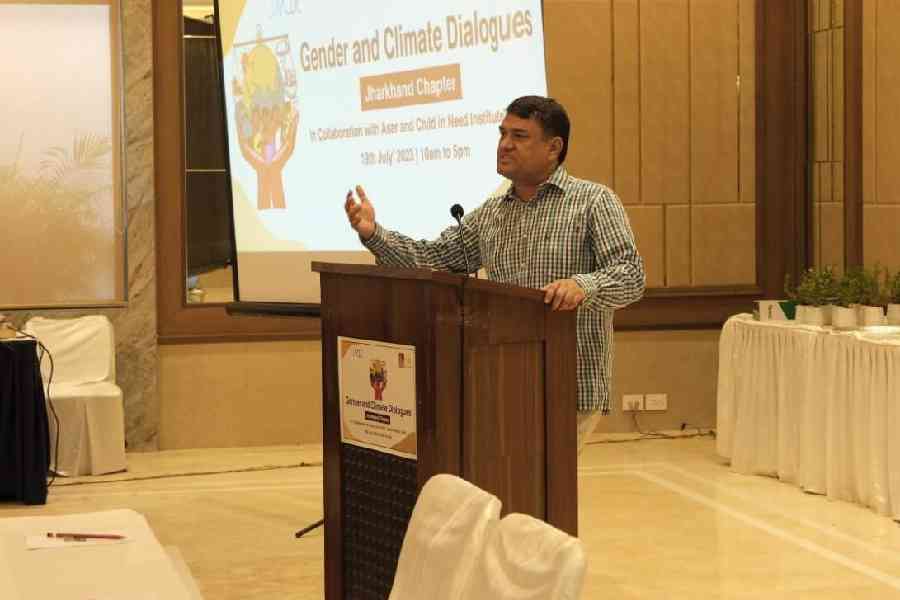Building local women’s leadership on climate change will be crucial for fighting challenges associated with it, felt experts at the end of a daylong workshop in Ranchi on Wednesday.
A key objective of the workshop organised by Asar social impact advisors and NGO Child In Need Institute (CINI) was to provide a platform to create new partnerships, initiate collaboration between diverse stakeholders and invite suggestions to strengthen the work around gender and climate change in Jharkhand.
“When we speak about the impact of climate change on women, we need to focus on some key areas: increased health risks, access to water and sanitation and women’s limited participation in decision-making,” said secretary, department of drinking water and sanitation, Jharkhand, Manish Ranjan in his keynote address.
Citing some key research findings from organisations such as WHO, ILO, UNDP etc., Ranjan added: “Evidence suggests that we need gender-responsive policy to address the issues resulting out of climate change as they disproportionately affect women. We need to foster women’s leadership on the issue and make women advocates on the issue for mitigating climate change effectively.”
NREGA commissioner Jharkhand Rajeshwari B, who also delivered the keynote address said: “In order to address the issues that women face due to climate change, we need focused efforts. This involves the sensitive utilization of existing resources and streamlining the implementation of policies in accordance with the needs of women.”
Neha Saigal, director, the gender and climate programme at Asar presented a gender-transformative climate framework which focused on solutions at the intersection of climate mitigation, adaptation and resilience led and driven by women especially those from tribal communities. The framework proposes different strategies and levels of engagement for different stakeholders in the state.
State programme manager, CINI Jharkhand, Tanvi Jha, presented the findings from their study impacts of climate change on women and girls in Jharkhand. The study consists of some important insights from women across age groups on the inter-linkages between climate change, the socio-economic status of communities, migration trends and the overall impact of these factors on the lives of young girls and women.
The workshop had over 70 participants, including government representatives, organisations and individuals working on climate change and allied areas such as health, nutrition and education, researchers and members of women Self Help Groups (SHGs).











